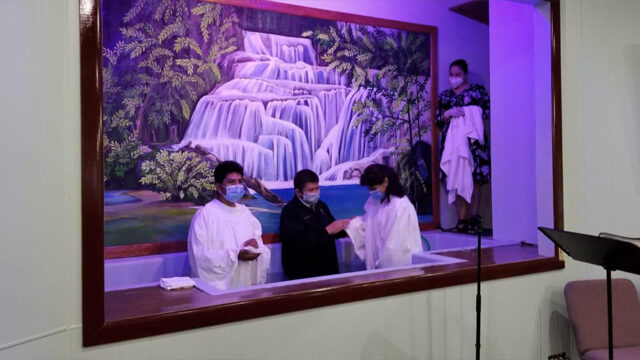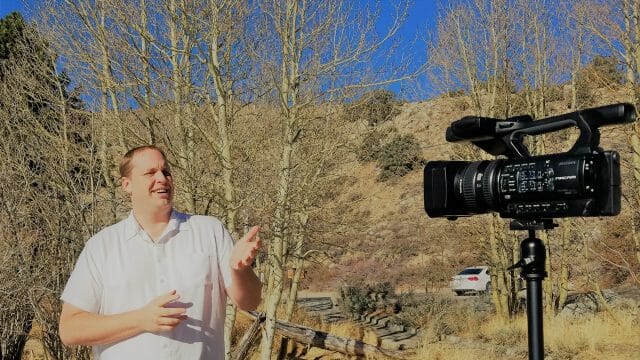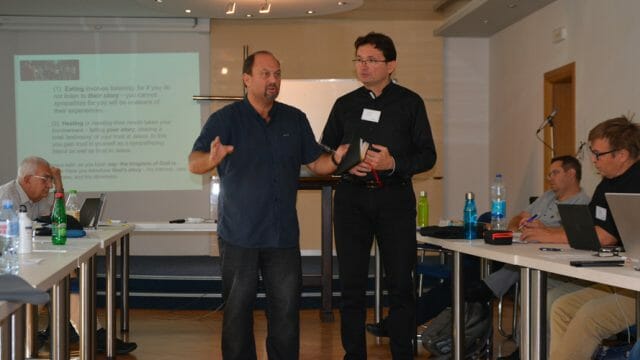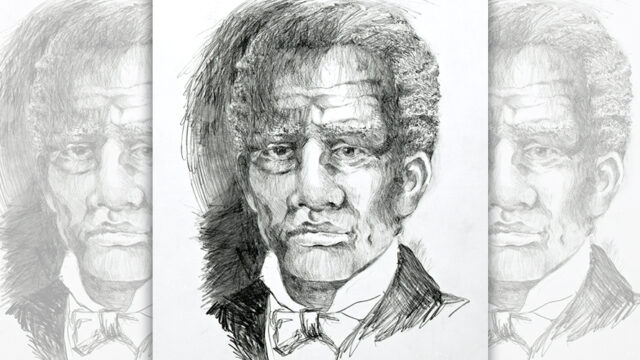Southern Africa-Indian Ocean Division releases statement after self-touted cure promoted in Madagascar.
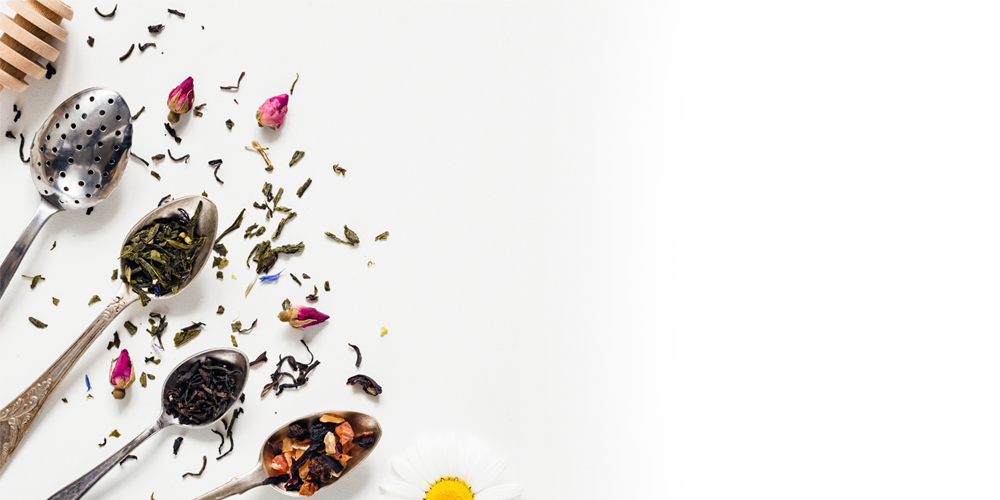
The following is a statement by the Adventist health ministries director in the Southern Africa-Indian Ocean Division, posted by Adventist Echo on May 12, 2020.—Editors
The advent of COVID 19 and its virus, SARS-CoV2, has brought up a number of issues, including the urgent desire to find a cure. Somehow, the pressure for solutions has brought to bear all spheres of people who are usually not directly active in medicine and disease treatment issues.
Of note, we have witnessed various comments and statements on scientific information being handled by politicians, often much to the chagrin of professionals in those fields.
Nations of the world have tasked the World Health Organization (WHO) as the watchdog for global health issues like pandemics. As such, most countries respect and accept the information from WHO as authentic, unbiased, and in the best interest of the global community. Therefore, in this era of political leaders’ enthusiasm for health issues as concerns for their citizens rise, the world also looks to WHO for guidance as often as needed. Notwithstanding its shortcomings, real or perceived, it is still in our interest to heed WHO’s advice.
The Madagascar Case
On April 20, 2020, the president of Madagascar, Andry Rajoelina, made headlines around the world when he announced that Madagascar had found the cure for COVID-19. This medicine is called COVID-Organics and was touted to be both preventative and curative for the COVID-19. At that point, it had apparently already cured two people. According to Lova Hasinirina Ranoromaro, the president’s chief of staff, the medicine had been tested on a sample of 20 patients over three weeks.
Research and tests on the medicine were carried out at the Malagasy Institute of Applied Research (Imra), led by its director-general, Charles Adrianjara.
This medicine is actually a herbal tea that is supplied in dried form or ready-to-drink fluid. The exact ingredients of this infusion have not been fully divulged, but it is said to contain the herb Artemesia annua as the main ingredient, along with other herbs. Following its launch, the president ordered it to be given freely to all, and schools could reopen provided the students took the drink.
There have been dissenting voices from the scientific community, including the National Academy of Medicine Madagascar (NAMM), which objected to referring to COVID-Organics as medicine but rather as an improved herbal drink. They also called for caution on the use of an untested substance on the wider population against their will.
It is claimed that the remedy has contributed to Madagascar’s increase of recoveries and the viral spread reduction. It has been reported that other countries including Tanzania and Guinea Bissau have shown an interest in procuring some of the herbal drink for their populations.
A concern has been raised by both the WHO and the Africa Center for Disease Control (Africa CDC) on the claims of this remedy. The Africa CDC has invited Madagascar to subject its treatment and related ingredients for peer review and evaluation to ascertain the validity of the claims.
A Word of Caution
1. As the Adventist Health Ministries Department, our position on health in general, and on the use of remedies that are put into the body in whichever avenue, is that all practices and remedies must be evaluated on whether they are in line with the Bible, the Spirit of Prophecy, and evidence-based medicine.
2. COVID-19 is a novel virus disease, and as such, there are still many unknowns with new discoveries of the trajectory of the disease found literally daily. Worldwide teams are working on all manner of research to find ways to fight this scourge, including vaccines and medicines. Since this is a novel virus, our evaluation of the recommended treatment practice will be on the principles of interpretation and evidence-based medicine.
3. It is our understanding that the Madagascar remedy has as the main ingredient Artemisia annua, also known as qinqhao, sweet wormwood, sweet annie, sweet sagewort, annual wormwort, or wormwood. It is an ancient Chinese herb on record for more than 2,000 years for the treatment of fever, other body discomforts, and in later years (the 1970s), found effective against malaria.
4. In Madagascar, the Imra is an old institution that has produced some acknowledged herbal medicine. It was established in 1956 and has been set to preserve traditional remedies and collaborate internationally to get the best out of both worlds where medicines are concerned. It has been using Artemisia annua since it was introduced to Madagascar in 1975 to treat malaria.
5. Since the outbreak of corona-related diseases in China, Chinese researchers and other teams have been working on the potential use of artemisia derivatives since it was observed that there was some promise of relief for COVID-19 patients when anti-malaria drugs like chloroquine and anti-HIV drugs were used. Some groups have been working on these tests since the advent of SARS in the early 2000s.
6. There are a number of research papers published for the use of Artemisia annua to treat other conditions like arthritis, cancer, and some other parasitic infections. Many of these are still at the research stage and not open for general public consumption.
7. There have been some concerns with side effects and other complications reported using the Artemisia annua remedies, of note is ototoxicity — inflammation of the ear — leading to possible deafness in severe cases. Also, hepatitis and dermatitis have been reported. Concerns of resistance formation in malaria treatment from the prolific use of Artemisia annua as monotherapy have been raised.
8. With limited subjects tested on for the remedy, there are concerns about dosing for the right treatment level. Getting the right concentration of Artemisia annua derivatives is an ongoing challenge as the active ingredients appear to be affected by dissolving in water.
Do Not Take It Lightly
In view of the above points, it is acknowledged that people taking the COVID-Organics herbal tea of Madagascar may have some medicinal effect that could affect the users positively or negatively, depending on the quantity and the state of health of the user. However, as indicated, this remedy has not been sufficiently tried for COVID-19. Tests only showed some promise but were never proven reasonably effective.
COVID-19 is a new and evolving disease. It would be unfortunate to take it lightly and expose people to the condition with the belief of some untested protection. Thus, we would strongly counsel our members not to neglect the tried and tested methods of prevention. It is noted that Madagascar continues to encourage social distancing, use of masks, and hand-washing as the first line of defense from the coronavirus.
Sentiments that the Madagascar treatment is not being considered because it comes from Africa are unfortunate. It is hoped that having demonstrated that there are African medicine peer-review mechanisms that have been started, we will all await the verdict from relevant professionals.
We wish to uphold the precaution of the WHO not to jump to conclusions on any remedy until proven useful by relevant bodies.
May those contemplating taking this remedy also note that the active ingredients have also been shown to give side effects that may leave one debilitated, even though they may not get infected with COVID-19. So the standard precautions of ingesting chemically active substances should still prevail — first, do no harm. Take remedies that are proven to add value to your body, not introduce possible destruction.
Finally, as the SID Health Ministries, we note that this particular remedy has not passed the bar of evidence-based support yet, so we do not recommend it for COVID-19, be it for prevention or treatment. But we note that we can only advise, and our members can now make informed decisions on this matter.
The original version of this release was posted by the Southern Africa-Indian Ocean Division Adventist Echo.


